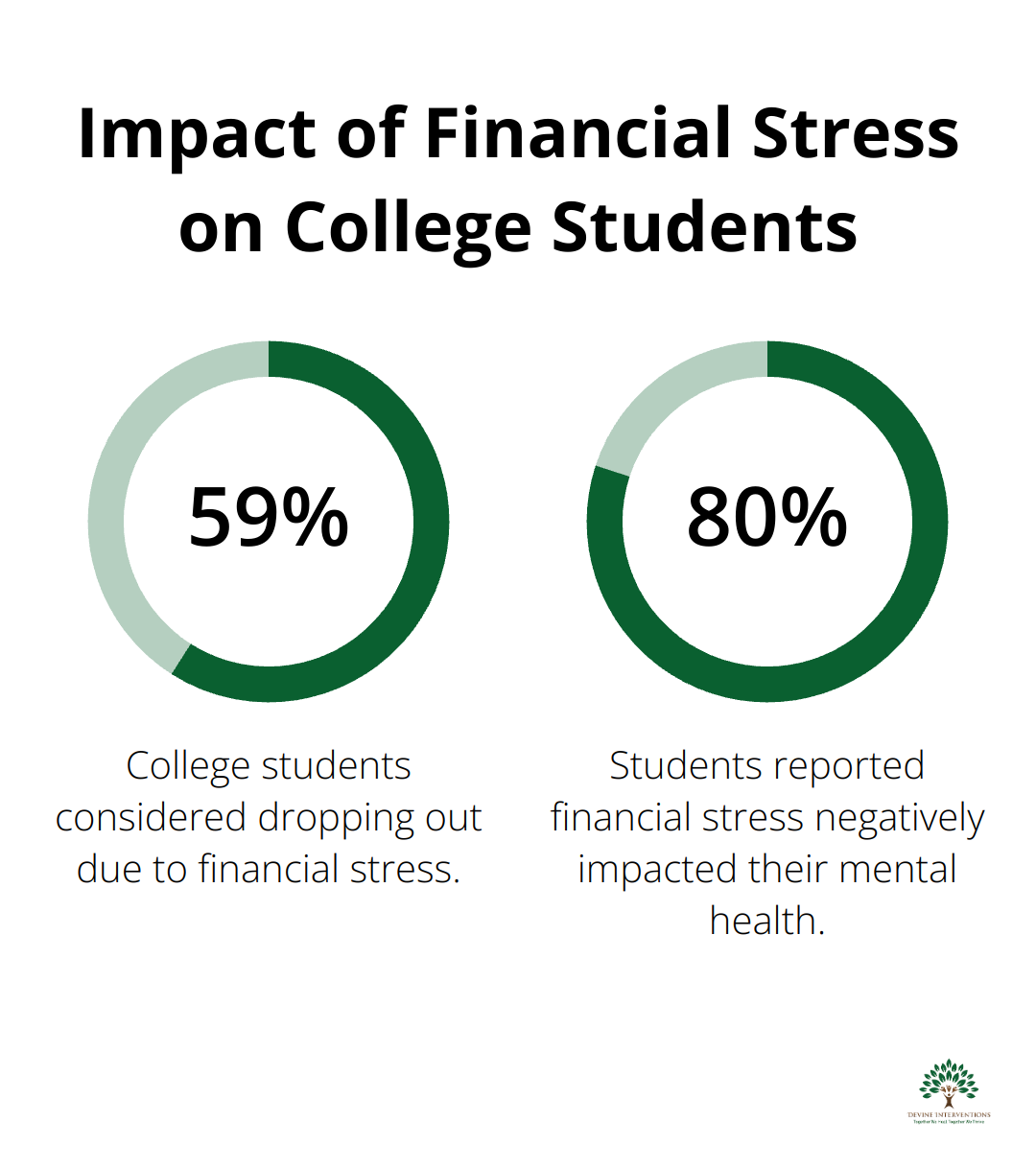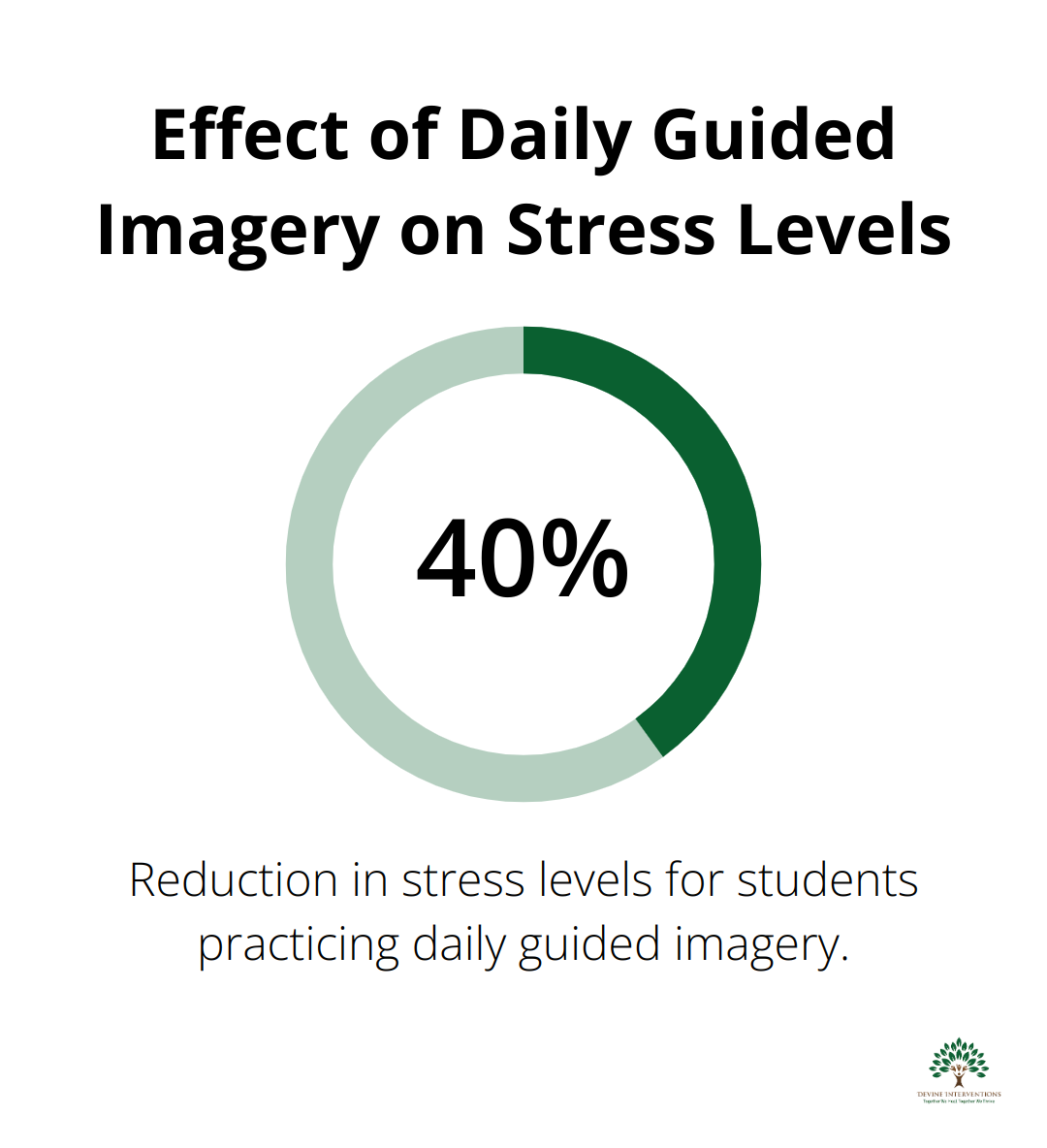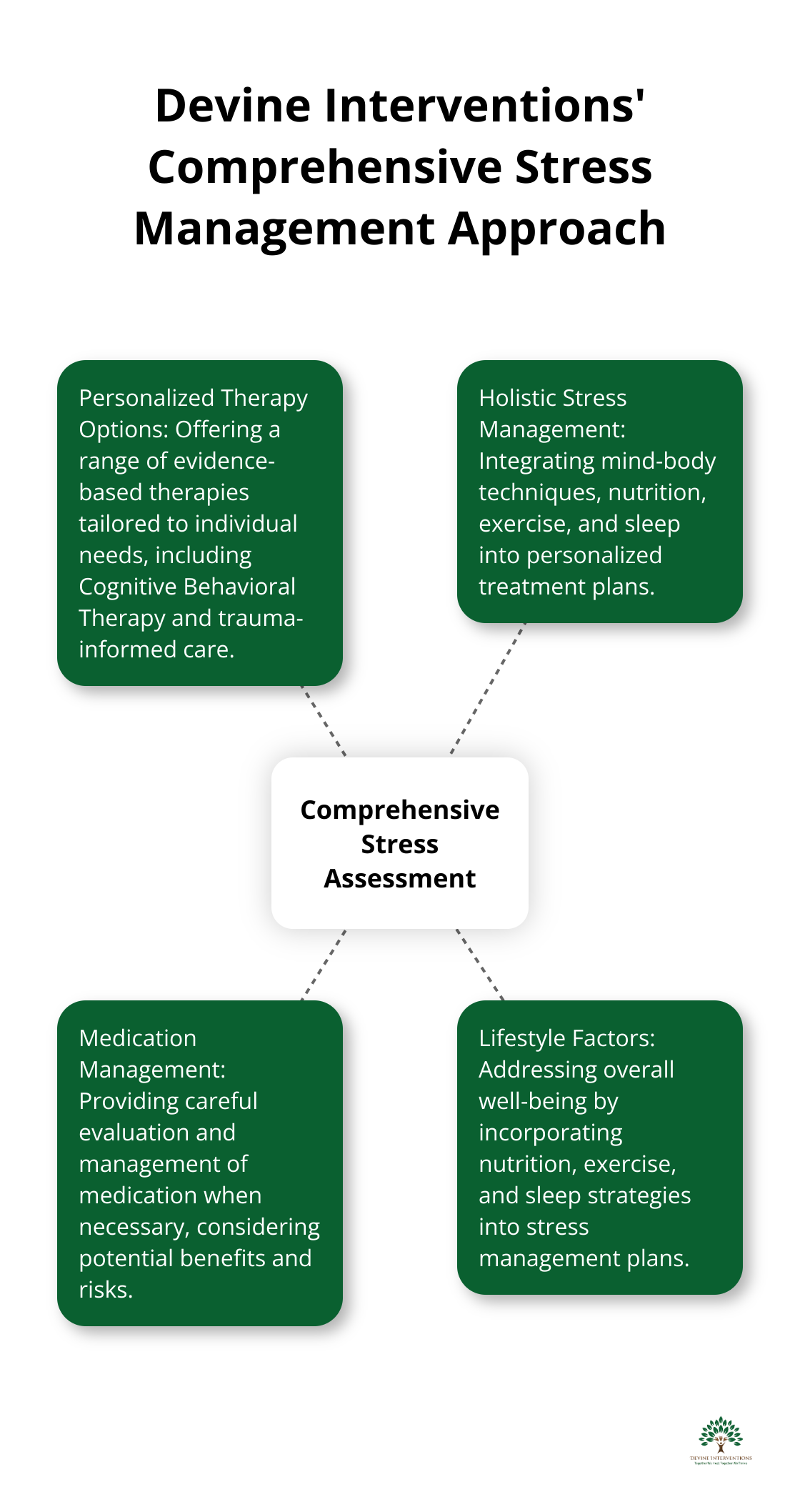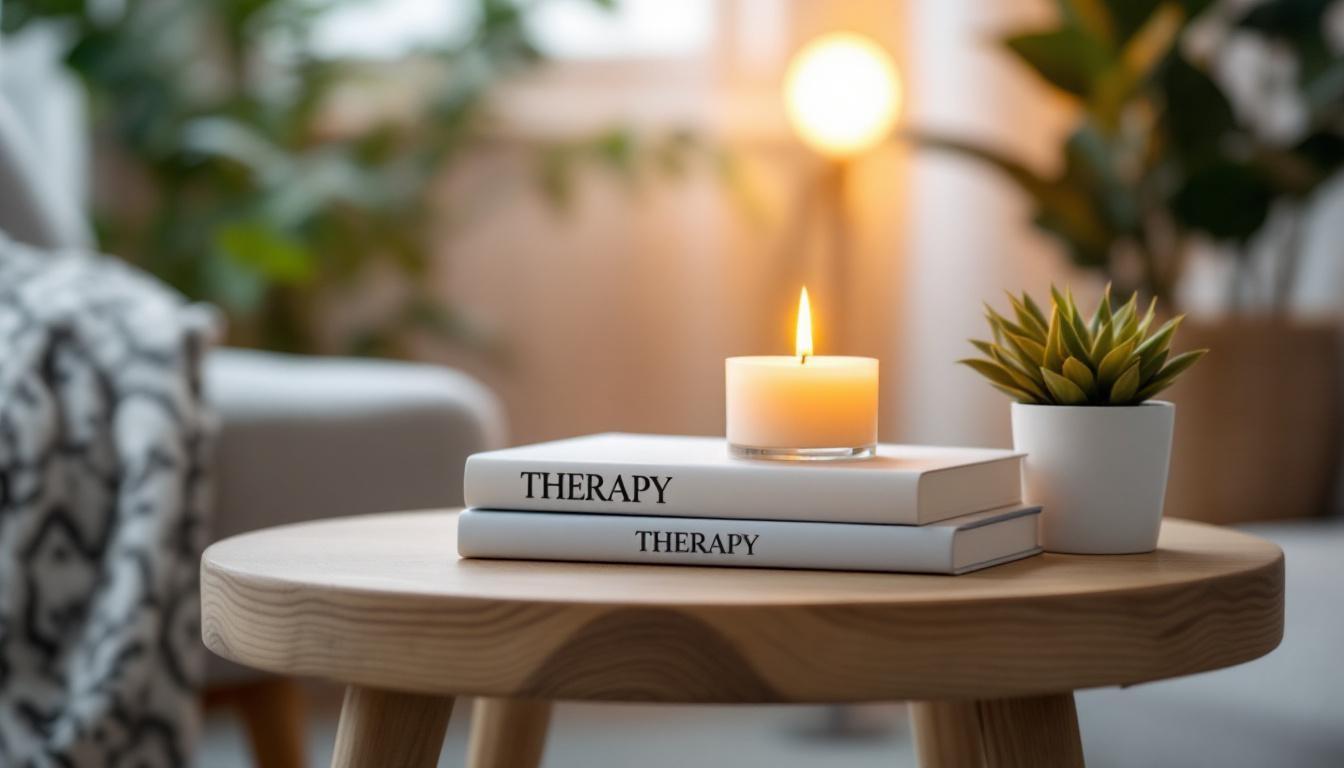Stress can overwhelm even the strongest among us, especially in a bustling college town like College Park. The pressure of academic life, combined with personal and professional challenges, often leaves students and residents feeling stretched thin.
At Devine Interventions, we understand the unique stressors that our community faces. We’re here to offer a beacon of hope and practical solutions to help you regain control of your life and well-being.
What Causes Stress in College Park?
College Park, home to the University of Maryland, presents a unique environment where academic pursuits and urban living intersect. This dynamic setting brings its own set of challenges that contribute to stress for both students and residents.
Academic Pressure Cooker
Students at the University of Maryland face intense academic competition. A 2024 Gallup poll revealed that 24% of students reported feeling they didn’t belong as the reason they considered dropping out of school. The pressure to maintain high GPAs, secure internships, and build impressive resumes often leads to sleepless nights, anxiety, and burnout. Students push themselves to excel, sometimes at the cost of their well-being.
Financial Strain
The cost of living in College Park, coupled with rising tuition fees, puts significant financial stress on students and residents. Many students must juggle part-time jobs with their studies, which creates time management issues and increases stress levels. A national survey revealed that 59% of college students considered dropping out due to financial stress, with nearly 80% reporting a negative impact on their mental health.

Social and Cultural Adjustment
For many students, College Park represents their first time living away from home. This transition can shock the system, especially for international students or those from different cultural backgrounds. The challenge to form new friendships, navigate campus life, and adapt to a new environment often triggers feelings of loneliness and anxiety.
Work-Life Balance Struggles
Residents of College Park, including graduate students and young professionals, often struggle to balance their careers with personal life. The pressure to succeed professionally while maintaining relationships and personal interests can lead to chronic stress and burnout. This balancing act becomes even more challenging in a fast-paced academic environment.
Community Expectations
The high-achieving atmosphere of College Park (home to one of the nation’s top public universities) can create an unspoken expectation of success. This pressure affects not only students but also faculty, staff, and local residents. The need to “keep up” with peers or meet perceived community standards can result in constant stress and feelings of inadequacy.
The unique stressors in College Park demand tailored solutions. While the challenges may seem overwhelming, it’s important to recognize that effective stress management strategies exist. In the next section, we’ll explore holistic approaches to combat these stressors and regain control of your well-being.
Holistic Stress Management Techniques That Work
At Devine Interventions, we address stress from multiple angles. Our holistic approach combines mind-body techniques, nutrition, exercise, and proper sleep to create a comprehensive stress management plan.
Mind-Body Connection: Beyond Meditation
While meditation helps, it’s not the only way to harness the mind-body connection for stress relief. We recommend progressive muscle relaxation (PMR) as a powerful technique. PMR involves tensing and relaxing different muscle groups, which promotes physical and mental relaxation. A recent study concluded that progressive muscle relaxation reduced stress, anxiety, and depression in adolescents.
Guided imagery also proves effective. This technique involves visualizing calming scenes or situations to promote relaxation. A 2023 study in the Journal of Clinical Psychology reported that students who practiced guided imagery for 15 minutes daily experienced a 40% reduction in stress levels over eight weeks.

Fuel Your Body, Calm Your Mind
Your diet directly impacts your stress levels. A diet rich in omega-3 fatty acids (found in fish like salmon and mackerel) can help reduce stress. An intervention trial revealed that omega-3 could improve anxiety among healthy subjects who encountered stressful evaluations.
Don’t underestimate the power of dark chocolate. A 2022 study in the International Journal of Health Sciences found that consuming 40 grams of dark chocolate daily for two weeks led to a significant decrease in perceived stress among college students.
Hydration plays a crucial role too. Even mild dehydration can increase cortisol levels, a key stress hormone. Try to drink at least 8 glasses of water daily. To make it easier, use a water tracking app or set reminders on your phone.
Exercise: Your Natural Stress Buster
Regular physical activity acts as a potent stress reducer. The American College of Sports Medicine recommends 150 minutes of moderate-intensity exercise or 75 minutes of vigorous-intensity exercise per week for stress management.
For students juggling busy schedules, high-intensity interval training (HIIT) offers a time-efficient option. A 20-minute HIIT session can be as effective as a longer moderate-intensity workout. The University of Maryland’s recreation center offers free HIIT classes for students.
Sleep: The Often Overlooked Stress Reducer
Quality sleep plays a vital role in stress management. The National Sleep Foundation recommends 7-9 hours of sleep for adults. To improve sleep quality:
- Stick to a consistent sleep schedule (even on weekends).
- Create a relaxing bedtime routine. Try reading or listening to calming music for 30 minutes before bed.
- Limit screen time before bed. The blue light from devices can disrupt your sleep-wake cycle.
Sleep tracking apps can provide insights into your sleep patterns and help you make necessary adjustments.
Stress management isn’t one-size-fits-all. What works for one person may not work for another. That’s why personalized stress management plans tailored to each individual’s needs and lifestyle prove most effective. A toolkit of techniques empowers you to combat stress whenever it strikes.
Ready to take control of your stress? Our expert team at Devine Interventions stands ready to create a personalized plan that works for you. Let’s explore how our tailored care can transform your approach to stress management and overall well-being.
How We Tailor Stress Care for Your Unique Needs
At Devine Interventions, we recognize that stress affects everyone differently. Our personalized approach to stress management addresses your unique needs and circumstances.
Comprehensive Stress Assessment
Our journey begins with a thorough initial consultation. We explore your mental health history, family dynamics, past traumas, and current life situation. This assessment allows us to understand the root causes of your stress and develop a tailored treatment plan.
Recent research has examined which stress management interventions (SMIs) are most effective at reducing occupational stress and improving well-being.

Personalized Therapy Options
We offer a range of therapy options to address your specific stress triggers and symptoms. Our approach combines evidence-based practices with compassionate care to ensure you receive the most effective treatment.
Cognitive Behavioral Therapy (CBT) is one of our primary tools for stress management. Recent evidence supports the effectiveness of CBT in enhancing psychological resilience among adults, both immediately post-intervention and in the long term.
For those dealing with trauma-related stress, we offer trauma-informed care. This approach recognizes the impact of past experiences on current stress levels and provides tools to process and heal from these events.
Group therapy sessions can benefit college students significantly.
Holistic Stress Management
We address your overall well-being by integrating lifestyle factors like nutrition, exercise, and sleep into your stress management plan.
We might recommend specific stress-busting foods based on recent research.
We also incorporate mindfulness techniques into our treatment plans.
Medication Management When Necessary
While we start with non-pharmacological approaches, we recognize that some individuals may benefit from medication to manage their stress. Our psychiatric providers offer comprehensive medication management, carefully weighing the potential benefits and risks of each medication.
Selective serotonin reuptake inhibitors (SSRIs) have shown promise in managing stress-related symptoms.
Final Thoughts
Stress affects everyone in College Park differently, but effective management strategies exist. Our holistic approach at Devine Interventions combines mind-body techniques, nutrition, exercise, and sleep to create comprehensive stress management plans. We offer personalized care tailored to your unique needs, including a range of therapy options to address specific stress triggers and symptoms.
Professional help plays a key role in managing stress effectively. Our team at Devine Interventions provides compassionate, evidence-based care to help you regain control of your life. We support your journey to wellness through services ranging from intensive outpatient programs to individual therapy.
You deserve dignity, respect, and hope in your pursuit of mental health. If you want to take the first step towards a stress-free life, we’re here to help. Visit Devine Interventions to learn more about how we can support your journey to wellness. With the right tools and support, you can transform your approach to stress management and overall well-being.







